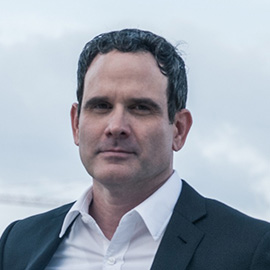Yes I support setting the budget at the effective tax rate which is considered the “no tax increase” tax rate. It is a misperception to think that taxes at the effective tax rate result in a flat budget. Additional property taxes are generated by new value added to the tax rolls each year. The City’s budget office estimates a record $3.8 billion of new property value added to the tax rolls this year. That is a 41% increase in new value from the $2.7 billion in FY 2017-2018. There are opportunities to maximize our fiscal budget and stay within the effective tax rate. We must highlight that it is also a misperception that there is not waste and inefficiencies with our City government, freeing up funds for other priorities. In the 2017-2018 budget, city staff gathered community input and the results were “51 % of the respondents stated a preference for keeping City services, taxes, and fees at existing levels “28% expressed a preference for reducing City taxes and fees, even if it meant reducing services.” That means 79% of the people surveyed are opposed to raising taxes and fees. That is a citizen mandate. A mandate that has been ignored in the past 4 years. Using 2014 as a baseline, the increase in the Maintenance & Operations and Debt Service (M&O and DS) tax rate was 4.46% in 2014. In each of the next 4 years the increase in the total tax rate (M&O and DS) respectively over the effective rate has been 6.68% (2015), 8% (2016), 8.3% (2017) and 6.84% for 2018. By the way, 8% is the rollback rate, and any increase over this rate can allow a citizen petition. The rate of increase in our City budget cannot continue. Tax increases of this magnitude are NOT in our best interest. It is a faulty assumption that we need skyrocketing tax increases to provide the needed services for our community, and that tax increases do not negatively impact us. The underlying issue is how the city manages its budget and lives within its means. It’s like a family budget. Expenditures cannot exceed the family’s income. A family focuses on needs not wants and then efficiently and effectively uses its resources. That’s what this city government must do. Of course, the city budget is more complex, but the principles are the same. The property tax levy has increased from $474.8 million in 2014 to $669.4 million in the proposed budget. That’s a 41% increase in taxes levied in just 4 years! That is an increase of $194.6 million dollars! That $194.6 million comes from Austin taxpayers. Over the last 4 years, the City has failed to live within its means, passing on to families and businesses the costs. This is squeezing our family budgets tighter every year. The results are obvious when more businesses are closing because they cannot make a profit and pay their property taxes and homeowners and renters are forced to sell and leave Austin. The other very real problem is that the City has increased its dependence on borrowing. It’s just like credit card debt. It needs to be paid back sooner rather than later. The results of our high borrowing rates are increased debt service and increases property taxes. According to the City’s 2018-2019 Proposed Budget the City has $ 1.4 billion in outstanding General Obligation debt. This does not include debt that has been authorized but not yet issued. This also does not include the $925 million in additional debt on the November ballot.
Economic Opportunity, Austin Chamber of Commerce
View All Reponses >>

